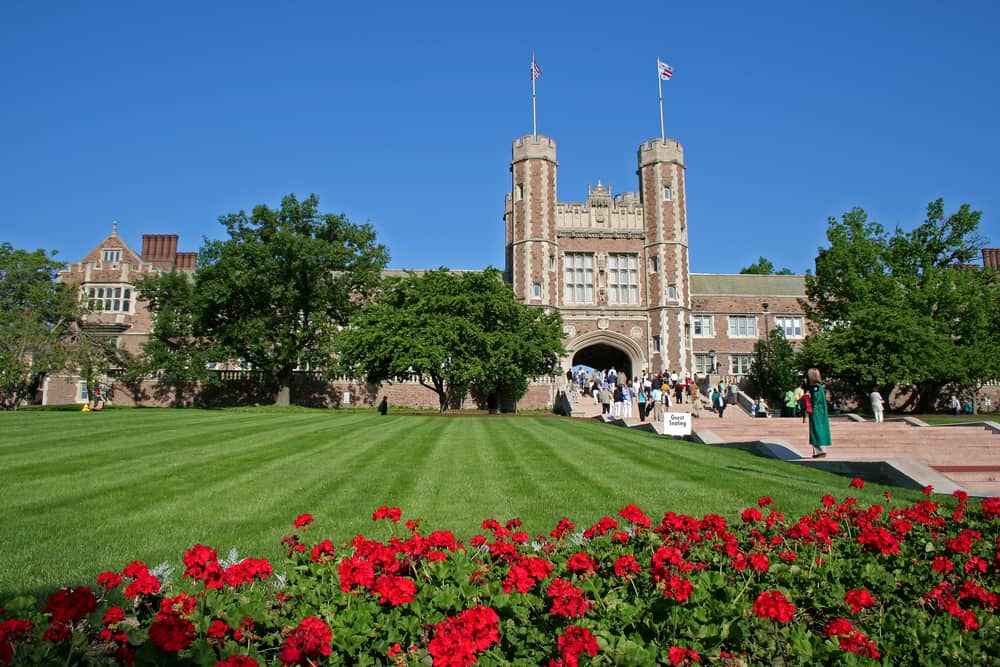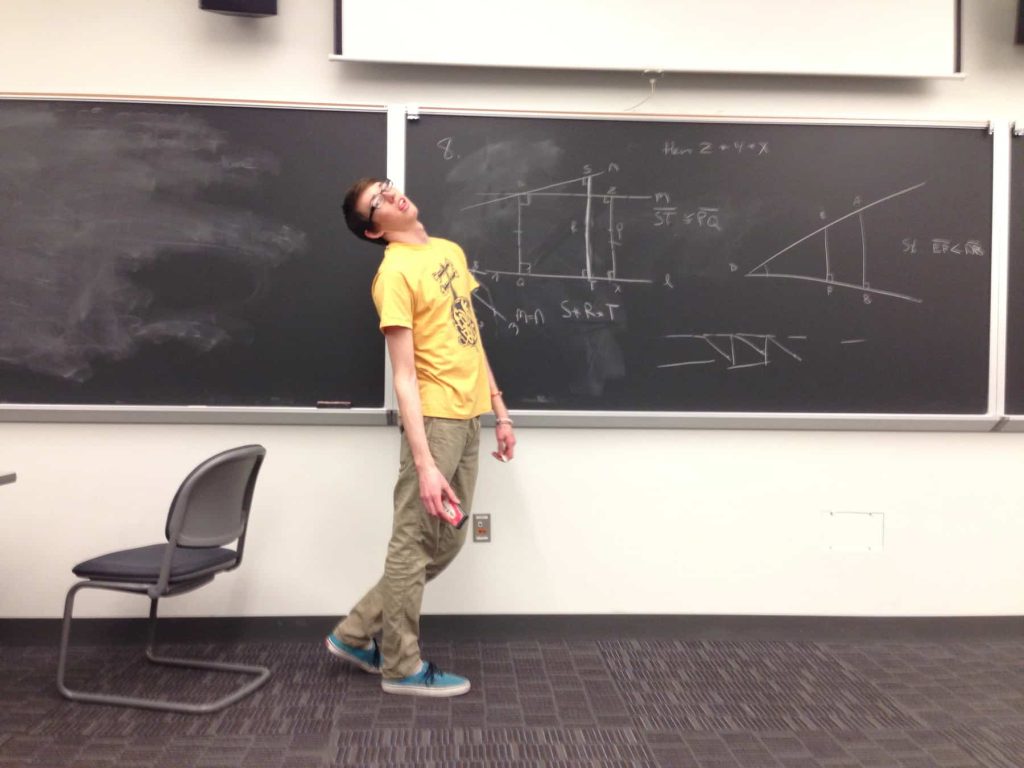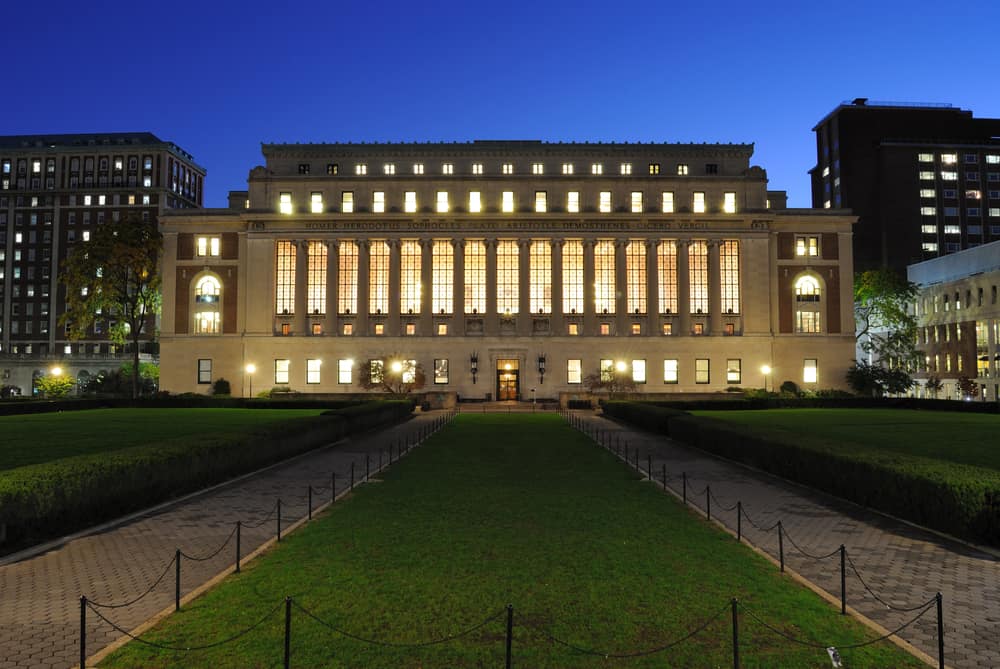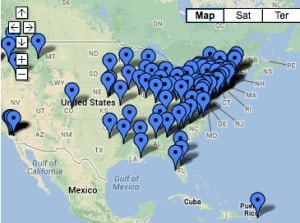
During the last two posts, we’ve been exploring possible academic choices for a future valedictorian from North Carolina.
If you missed them and the more than two dozen comments that the posts triggered, here they are:
Where Should This Teen Attend College?
Where Should This Teen Attend College? Part II
Some of the parents who shared their thoughts mentioned 3-2 engineering programs. I promised to share what I know about 3-2 engineering options.
I explored these dual engineering programs several years ago when my son Ben, who will soon be starting his senior year at Beloit College, was contemplating majoring in engineering. While Ben wanted to consider engineering he had zero interest in attending a university. He wanted to pursue a bachelor’s degree at a liberal arts college.
Ben already understood what a liberal arts education offers because his sister Caitlin was a student at Juniata College, which is one of the liberal arts colleges featured in late Loren Pope’s popular book, Colleges That Change Lives: 40 Schools That Will Change the Way That You Think About Colleges. Caitlin enjoyed all the perks that a liberal arts college can provide, including small classes, great interactions with professors, internship opportunities and the freedom to explore her academic passions.
Initially I thought Ben’s possible major—engineering—would prevent him from attending a liberal arts college, which, as the name suggests, focuses on the liberal arts such as history, English, philosophy, as well as the sciences and math. It’s rare to find a liberal arts college that offers engineering, but here are some exceptions:
In doing some research, however, I discovered the existence of 3-2 engineering programs, which allow students to attend a liberal arts college for three years and obtain a bachelor’s degree in a major like physics or chemistry. The student transfers after three years to an engineering school, such as Washington University in St. Louis, for an additional two years to earn an additional bachelor’s degree in engineering.
How Good Are 3-2 Engineering Programs
I wondered how successful these programs were so I contacted the 3-2 coordinators at Washington University and Columbia University when my son was exploring his options. These two universities happen to be popular for the dual degree programs. The 3-2 coordinators at both schools raved about the programs and the caliber of the liberal arts students who participate.
The Columbia coordinator called 3-2 programs a “hidden jewel” and her peer at Wash U. said if he had to do it over, he’d get his engineering degree through a 3-2 program.
Because the liberal arts students take their prerequisites, including four semesters of math, in small classroom settings, they are well prepared for the rigors of engineering—and can be better prepared than those who start at engineering schools where classes are typically much bigger. They are also less likely to “wash out” because they are more likely to avoid professors who believe it’s their duty to “weed out” weaker engineering candidates.
Employers also love the liberal arts/engineering majors since they not only possess the technical skills, but also know how to write papers, make presentations, and think beyond the requirements of an engineer. The 3-2 coordinator at Washington U. at the time told me that the dual-degree graduates at his institutions are highly popular with employers.
After initially considering a possible double major in physics and engineering, Ben switched over to mathematics as a major with a minor in studio art.
3-2 Engineering Nut & Bolts
If you are interested in a 3-2 program, many liberal arts colleges maintain these program. I pulled this map off the dual engineering program website at Columbia University that shows just how many liberal arts colleges are affiliated with the program.
Click on the following link to learn more about Columbia’s 3-2 engineering program.
Here is the link to Washington University’s 3-2 engineering program. Here are the liberal arts colleges and universities that participate in Wash U’s dual degree program.
Other Engineering Dual Degree Programs
Columbia and Wash U aren’t the only schools that offer dual degrees, but they are popular choices at many liberal arts colleges.
Here are links to some other dual degree programs:
- Dartmouth College engineering dual degree program
- Georgia Tech University dual degree program
- Penn State dual degree program
- Rensselaer Polytechnic Institute 3-2 program
Teens who are interested in this engineering alternative should contact the 3-2 coordinator (often a physics professor) at the liberal arts colleges on their lists. When we were visiting colleges, we made sure we met with this professor. The dual-program coordinator can share what courses a student must take — lots of mathematics and physics. When I was researching schools, Columbia transfers had to have a minimum GPA of 3.0 and at Washington University it was a GPA of 3.25.
One of the drawbacks of the dual degree programs is that students must leave after three years to pursue engineering. That is a hard sell for some students. Students can graduate in four years and then transfer to an engineering school, but that will increase the cost.




Hi Lynn,
I just sent a couple questions you then found this. So another question. Is the 3-2 program limited to engineering? It seems as if the questions/responses relate to that engineering degrees.
Author
Hi Tom,
The only 3-2 programs that I know about are confined to engineering.
Lynn O.
I am a Senior in high school interested in 3-2 engineering programs because, while I am most interested in engineering as a career I also want to study other fields such as philosophy or business. I was considering minoring in one of these areas. Would this be possible in a 3-2 program? None of the college websites I have seen mention the feasibility of minoring alongside the 3-2 engineering program.
I meant biomedical engineering sorry
What is the advantage of doing the 3-2 program compared to the 4-2 program? Is it better to have 2 bachelors or a bachelors and a master? I am looking to pursue my bachelors in biochemical engineering at Maryville. I however am 22, going on 23. I didn’t go to school right after high school because I wanted to save up money to pay for college and I didn’t quite know what I wanted to do at that time. Any other advice for a student looking at a duel engineering program? Thank you
I completed a 3-2 program over 20 years ago (B.A. General Studies Fairfield U., B.S. Computer Science and Engineering, UCONN) It’s been a while, and certainly things have changed, but I’ll offer some of my experiences and thoughts.
1. The drop out rate at the liberal arts school was similar to what you’d expect at in a full blown engineering program. We started with 27 students. Nine made it to our sophomore year. Five or six of us went to UCONN.
2. As mentioned, admission to the engineering school is not automatic. I had to apply to UCONN and be accepted into the school of engineering. Once that happened, I had to transfer all of the credits from Fairfield.
3. Being “accepted” by the existing students at UCONN was not a problem. People transfer in (and drop out) all the time. It probably helped that my room mate at UCONN was also a comp sci major.
4. There’s no guarantee that you’ll finish the engineering part in 2 years. So the 3-2 could cost even more than you think. There were two of us that went to UCONN that took more than the two years.
5. Contrary to what some people have said, we had a lot of choices for electives on the liberal arts side. To make room for engineering courses, some of the liberal arts core was waived (we didn’t need two semesters of a foreign language and only one semester of a fine art).
6. After 20+ years working as an engineer, the liberal arts education has been helpful. It teaches you to look at things from a broad perspective, which is a helpful quality as an engineer.
Jim
I wasn’t aware of this option. We had been wondering about the benefits of a liberal arts college for our son because of the size (we both went to big Universities). We know he’s interested in software engineering, so this – and the comments – were really informative! I see your son did stay all 4 years at his liberal arts college. Did he decide that ahead of time, or did he start with the intent of doing 3-2?
Hi E.S.,
Ben had considered going into engineering, but while he was in college he decided he wanted to be a math teacher. In addition to the 3-2 option, students can major in physics (usually) and then pursue a master’s degree in engineering and skip the 3-2 altogether. Ben’s freshman year roommate at Beloit is doing this. He majored in physics and will be headed to University of California, Davis for his engineering master’s. Among the schools he was accepted to was U. of Texas Austin, which flew him down for a look.
I think the 3-2 route is a great one as is spending four years at a LAC and then heading to graduate school.
Good luck.
Lynn O.
Thanks for letting me know the masters option too. Good to know all the possible paths!
My son looked at 3-2 programs, but decided that he wanted to be able to stay at one school for his entire undergrad education. But he still wanted a smal school. He was accepted to Lafayette, but ultimately decided to go to Trinity University in San Antonio. While not technically a liberal arts school, they view themselves as one and have a very similar curriculum. The engineering program is small with a student/professor ratio in the department of 11:1, and the science programs are similar. Also, Trinity has a history of their S&E grads obtaining PhDs at a high rate. 5.5% of their grads go on to get S&E PhDs, but only about 20% of the students are pursuing those majors (unlike CalTech, Mudd, MIT, Rice, etc.).
Thanks for the great suggestion Tom! I wish him all the best!
Lynn O’Shaughnessy
Are you happy with Trinity University? We are visiting it and SMU next month with engineering in mind. Want liberal arts too. From PA so might consider Lafayette but bit impressed with lax LA curriculum.
In the past few days, I have posted about Wash. U’s Engineering School’s practices on my blog (inside-higher-ed.com). Having taught mathematics there for many years, I am feel that your post https://www.thecollegesolution.com/whats-up-with-washington-university is right on target. My post “What the Engineering School at Washington University in St. Louis Wants You to Know – And What It DOESN’T Want You To Know” gives some indication of the concerns that I would have about any ravings of the program’s coordinators. (Actually, in my post I directly address those ravings.)
Thank you for your great work.
Thanks Mark! I didn’t know about your blog, but I will now check it regularly! It’s great to get a perspective from a higher-ed insider.
Lynn O’Shaughnessy
These programs are a good idea when one considers that a four-year engineering degree often turns out to be a five-year engineering degree, for just the one bachelor’s degree. Another advantage, for those who can pay and stay, is that the graduate of two schools becomes part of two alumni networks.
Dartmouth college has a 3-2 program as well. One aspect of the program that I really like is that you can attend the Dartmouth program for the junior when many other juniors are abroad, return to your LAC for your senior year with your class, and then finish your final year at Dartmouth after your graduate from your LAC.
Other issues to consider is that it appears that few students, like your son Ben, who attend a LAC with the idea of doing a 3-2 program actually do so. I understand that a significant number lose interest. However,it is also important to note that many of the these 3-2 program do not guarantee entrance in the Engineering portion, even if minimum criteria are met. When we explored Reed College which has a 3-2 program with Caltech as well as some of the other 3-2 programs, the admissions counselor said that almost nobody does so once they start attending Reed. One of my good friends is very frustrated that they spent huge amounts of money for their son to a private college with the idea that he would end up with a 3-2 degree, and he did not have the grades to do so.
While 3-2 programs can have great benefits for those that use them, it is important to remember that most students don’t.
Finally, I have a question that maybe someone can answer. What happens to a students athletic eligibility when the transfer to a 3-2 program?
My understanding is that the NCAA allows 4 years of participation in sports over a 5 year span. The clock starts ticking the moment you enter your first class.
There are two issues with 3/2’s. First, students who attend wonderful, intimate LACs, such as Beloit are really in full stride with their classmates by their fourth year. Many of them decide to stay instead of leaving.
Second, they join an already cohesive unit that’s been working together, used to the level of rigor and less attention than might be found at an LAC. Adapting can be hard.
Those are not absolute deal breakers, but there after considering those tradeoffs, our son elected to go the traditional engineering route.
As for engineering at an LAC, we found out that it’s really not what most think. We visited all of them and everyone of them said “well, engineering is different,” when asked questions about dual majors and study abroad. Basically, an ABET accredited engineering curriculum is so regimented, there’s little room for other classes.
The best way to think about Bucknell, Lafayette a d Swarthmore is not as engineering within a liberal arts curriculum, but engineering along side everyone else doing a liberal arts curriculum.
The only school that does do engineering WITHIN an LAC type curriculum is Dartmouth. The caveat is that it is 5 years minimum for a BS.
In the end, our son found he could get more liberal arts exposure by going the traditional route at a good fit school with a standard engineering program.
Best of luck to all!
Thank you Lynn for this article. I was under the assumption that once you finished the 3+2 program, you graduated with a masters degree. I will definitely do more research on this option.
Thank you Lynn for a thorough explanation of the great 3-2 dual degree engineering programs! You are correct Jennifer that you receive two bachelor degrees one in liberal arts (usually a science subject or math) from the liberal arts college and a bachelor in engineering from the engineering school.
If you wish to get a master’s degree from the engineering school, some universities have 4-2 programs where you spend four years getting a bachelor’s degree from the liberal arts college and then 2 years studying for a master’s in engineering at the engineering school. I know of a student who is in this program with Maryville College being the liberal arts college and Washington University in St. Louis as the graduate program. Fortunately, they are both in the St. Louis area! Maryville’s engineering counselor insists that all the pre-engineering students start as if they are going to do the 3-2 program. That way they have flexibility as they make the decision on what they are going to do next in the junior year. This student wants to study abroad at some point at that is difficult to do in a typical 3-2 program.
For athletes wishing to study engineering, the 3-2 or 4-2 programs are especially recommended. Unless they are highly ranked in their sport nationally, they may only be able to play at a NCAA Division 2 or 3 school and these programs allow them to do so before they enroll in their engineering program.
One thing that comes to mind is overal cost. A student may go to a LAC that provides generous merit aid, but then transfers to Washington Univ for the final 2 years for the engineering degree. Washington Univ is a school which does not give out a lot of merit aid and has very high tuition. Parents would need to look into these costs well ahead of time and make sure they are affordable.
Hi Rose,
Yes, the cost is something to consider. If the student receives financial aid, he/she should be able to get a good package from Columbia or Washington U., which meets 100% of need. You will need to doublecheck that the packages apply to these students. There are no merit scholarships at Columbia. You’d have to check to see if there is merit aid available for dual program students at Wash U. Obviously, you would need to check out the finances at whatever engineering school a child would like to eventually attend.
Something else you should keep in mind is that most students beginning their college careers at engineering schools do not graduate in four years.
Lynn O’Shaughnessy